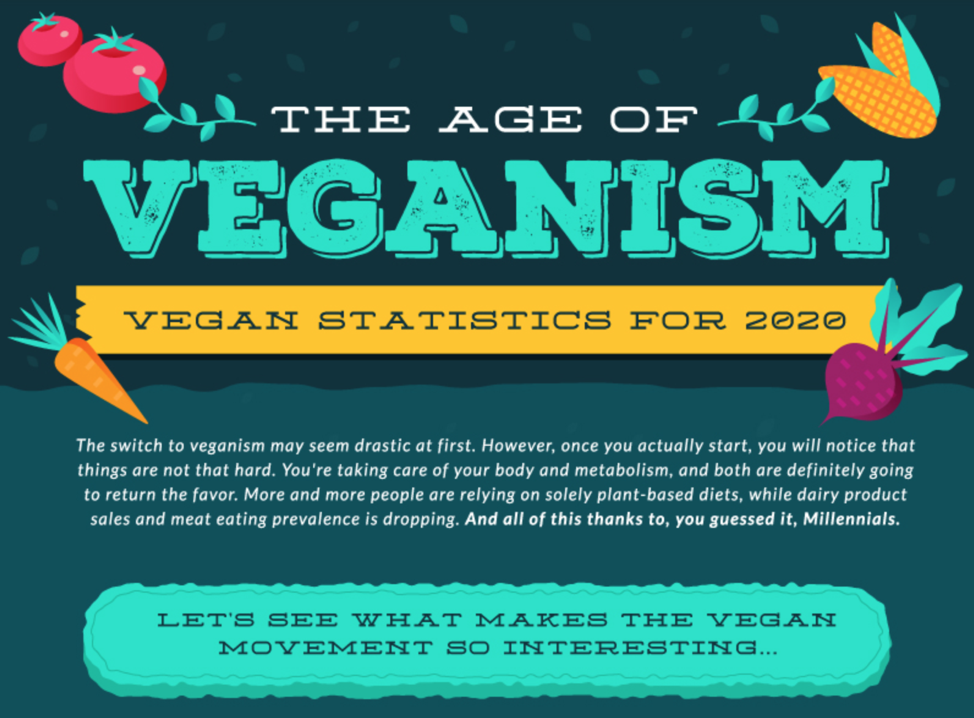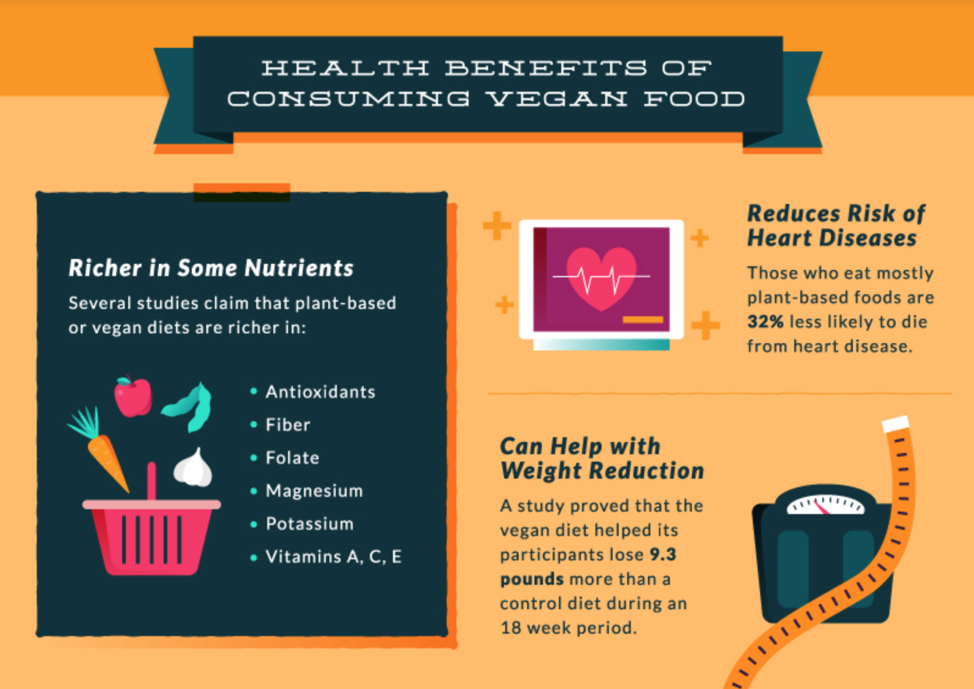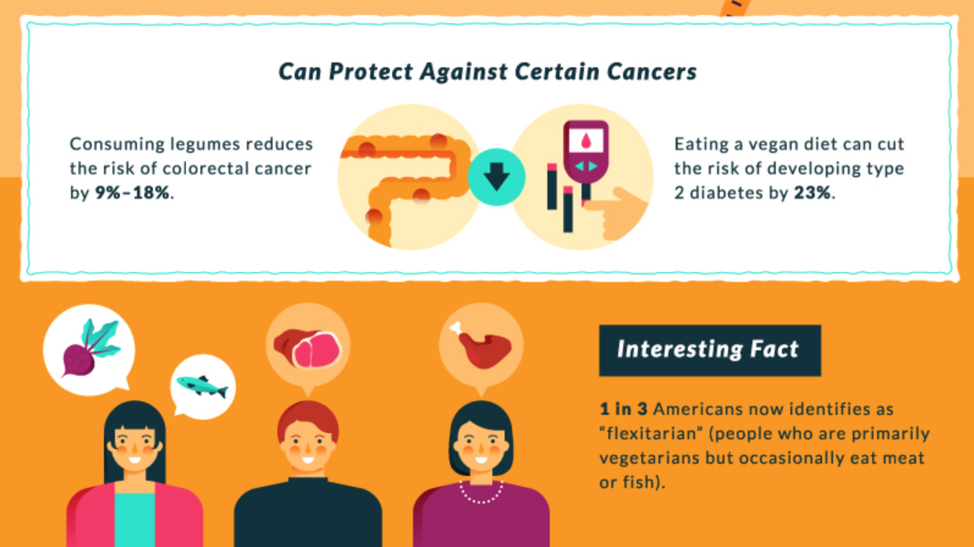
Article and Infographics by Maja Talevska
There are many misconceptions when it comes to the vegan lifestyle. Although it’s been around for centuries, the growing desire for a healthy, modern lifestyle has helped make significant inroads in the recent vegetarian and vegan statistics.
Some vegans choose to convert due to dietary changes and health needs, while others do so because they don’t want to contribute to the abuse of farm animals and the use of animal products. Many choose a vegan lifestyle because of the environmental impact that livestock farming produces, not to mention its impact on climate change overall.
Compiled below are unbiased statistics we have gathered on the vegan and vegetarian lifestyle and trends, including past, current, and future expectations. But first, a quick glimpse of the key statistics.
A Quick Overview of the Top 10 Vegan and Vegetarian Statistics
- Vegan diets are linked to a 35% reduced risk of prostate cancer.
- 45% of the Earth’s land is used for farming livestock in some way.
- As of 2018, the size of the global vegan food market was calculated to be worth $12.69 billion.
- Plant-based meat covers 2% of all packaged meat options.
- 38% of the population in India is vegetarian.
- According to the vegan statistics, more than 39% of people in the United States are adding more vegan food options to the dishes they eat.
- It’s expected that the market for vegan meat alternatives will hit $7.5 billion globally by 2025.
- The market for baby food that’s vegan or vegetarian will jump by 10.6% between 2016 and 2021.
- Europe represents 39% of the global market for meat alternatives.
- The most mainstream vegan food option is vegan junk food.

Following the vegan health benefits, statistics and research reveal that they outweigh the drawbacks.
(WebMD)
There are many concerns about the drawbacks of turning to a vegan diet. These downsides include a higher stroke risk, choline crisis , mood problems, and hair loss. Although they seem frightening, with the right nutrient intake and vitamins, they can easily be avoided.
But the benefits of just eating extra vegetables and fruit are profound and include a longer life, improved heart health, weight loss, and reduced risk of diabetes, just to name a few of the important ones. Everything comes down to the quality of the food consumed and balanced nutrition.
Vegan health statistics reveal that this diet can reduce the risk of developing type 2 diabetes by as much as 23%.
(Telegraph)
A 2019 Harvard study of 300,000 participants revealed that a vegan diet drastically reduces the chance of getting type 2 diabetes. Senior Professor Qi Sun shared that sticking to plant-based diets reduces the risk of diabetes, especially when only the healthiest plant-based diets are followed, which include nuts, legumes, whole grains, fruits, and vegetables.
Studies into the vegan trend reveal that vegan diets are linked to a 35% reduced risk of prostate cancer.
(Vegan Society)
In 2016, scientists from Loma Linda University in California researched 26,000 men and assessed the potential link between various diets and prostate cancer. The study compared vegan, pescatarian, and vegetarian diets. It revealed that vegan is the most effective. With more than 47,000 new cases of prostate cancer and 10,000 patients dying every year in the UK, this finding could be groundbreaking. In men, this is the second most common cancer. Furthermore, there are some recent cancer statistics that show a low vegetable and fruit intake are real cancer risk factors.

How long on average do vegans live?
Scientists at the Massachusetts General Hospital monitored more than 130,000 individuals over 30 years and revealed that vegans are less likely to die at a younger age than people who are not vegan.
Do vegans get cancer?
A 15-year-long study by Oxford University revealed that vegans have a lower risk of getting cancer than their meat-eating counterparts—this is particularly true in the case of prostate cancer.
Conclusion
Veganism continues to be on the rise as more and more companies take advantage of the continuously growing interest and provide more dairy and meat alternatives. Although it’s tough to define the exact number of vegans worldwide, the estimated figures and market sales confirm that this is more than just a mere trend. Vegan statistics reveal that the impact of veganism won’t end in 2019 but will instead continue for years to come.
About the Author
Maja Talevska is a content curator and contributor for HealthCareers

